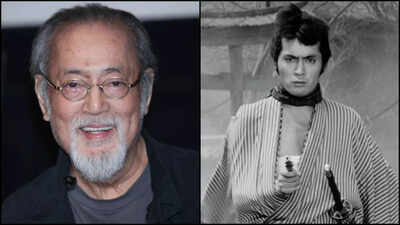ARTICLE AD BOX

Tatsuya Nakadai, the legendary and celebrated Japanese actor with more than 100 screen credits over the span of seven decades, passed away at the age of 92. The unfortunate news was reported on Tuesday.
However, the reason for the demise is unknown.
Tatsuya Nakadai passed away at 92
The spokesperson of the ‘Seven Samurai’ actor at acting studio Mumeijuku confirmed the passing, as per The Japan Times. Born on December 13, 1932, in Tokyo, Japan, Tatsuya Nakadai has had a prolific career. Gaining international fame after playing historical characters, he worked with Akira Kurosawa in the 1985 film ‘Ran.’ The film revolved around the landlord who retires and gives his business to his three sons.
However, they turn on each other as the power spoils them, as per The Hollywood Reporter.
About Tatsuya Nakadai's contribution
Nakadai’s collaboration with Masaki Kabayashi has been one of the most inspirational and profound in the history of Japanese cinema. The actor from the golden age of cinema worked with the filmmaker for 11 films, leading to the iconic ‘The Human Condition’ trilogy based on World War II’s oppressive Japan. The trilogy has ‘No Greater Love’ in 1959, ‘Road to Eternity’ in 1959, and ‘A Soldier’s Prayer’ in 1961.
As for his other films, they include ‘Harakiri,’ ‘Kagemusha,’ ‘The Yojimbo,’ ‘Immortal Love,’ ‘Kill!,’ ‘Sanjuro,’ and ‘The Sword of Doom.’Nakadai considered himself to be a theatre actor first, and worked in ‘Death of a Salesman,’ ‘Barrymore,’ and ‘Don Quixote.’ The late actor won two Blue Ribbon awards, one for ‘Harakiri’ in 1962, and ‘Kagemush’ and ‘The Battle of Port Arthur’ in 1980. He even worked in the latter stages of his life and received the Order of Culture in 2015, the highest honor for contributions in art, sciences, literature, culture, and craft in Japan.
Tatsuya Nakadai is survived by his daughter, Nao Nakadai.

 1 hour ago
4
1 hour ago
4








 English (US) ·
English (US) ·